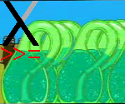Собственно, вопрос в теме.
Ответ на:
комментарий
от anonymous
Ответ на:
комментарий
от Debasher
Ответ на:
комментарий
от Debasher
Ответ на:
комментарий
от sf
Ответ на:
комментарий
от Debasher
Ответ на:
комментарий
от sf

Ответ на:
комментарий
от Debasher
Ответ на:
комментарий
от Debasher
Ответ на:
комментарий
от sf
Ответ на:
комментарий
от DarkEld3r


Ответ на:
комментарий
от Legioner

Ответ на:
комментарий
от SyntaxError
Ответ на:
комментарий
от Legioner

Ответ на:
комментарий
от SyntaxError
Ответ на:
комментарий
от newquestion

Ответ на:
комментарий
от SyntaxError
Ответ на:
комментарий
от SyntaxError

Ответ на:
комментарий
от sf

Ответ на:
комментарий
от Legioner

Ответ на:
комментарий
от newquestion

Ответ на:
комментарий
от SyntaxError
Ответ на:
комментарий
от newquestion
Ответ на:
комментарий
от Legioner

Ответ на:
комментарий
от monk
Ответ на:
комментарий
от monk
Ответ на:
комментарий
от sf

Ответ на:
комментарий
от monk
Вы не можете добавлять комментарии в эту тему. Тема перемещена в архив.
Похожие темы
- Форум Segmentation fault (2016)
- Форум Segmentation fault (2011)
- Форум segmentation fault (2018)
- Форум Segmentation fault (2011)
- Форум Segmentation Fault (2022)
- Форум segmentation fault (2022)
- Форум Segmentation fault (2010)
- Форум Segmentation fault (2009)
- Форум Segmentation fault (2008)
- Форум Segmentation fault (2008)
